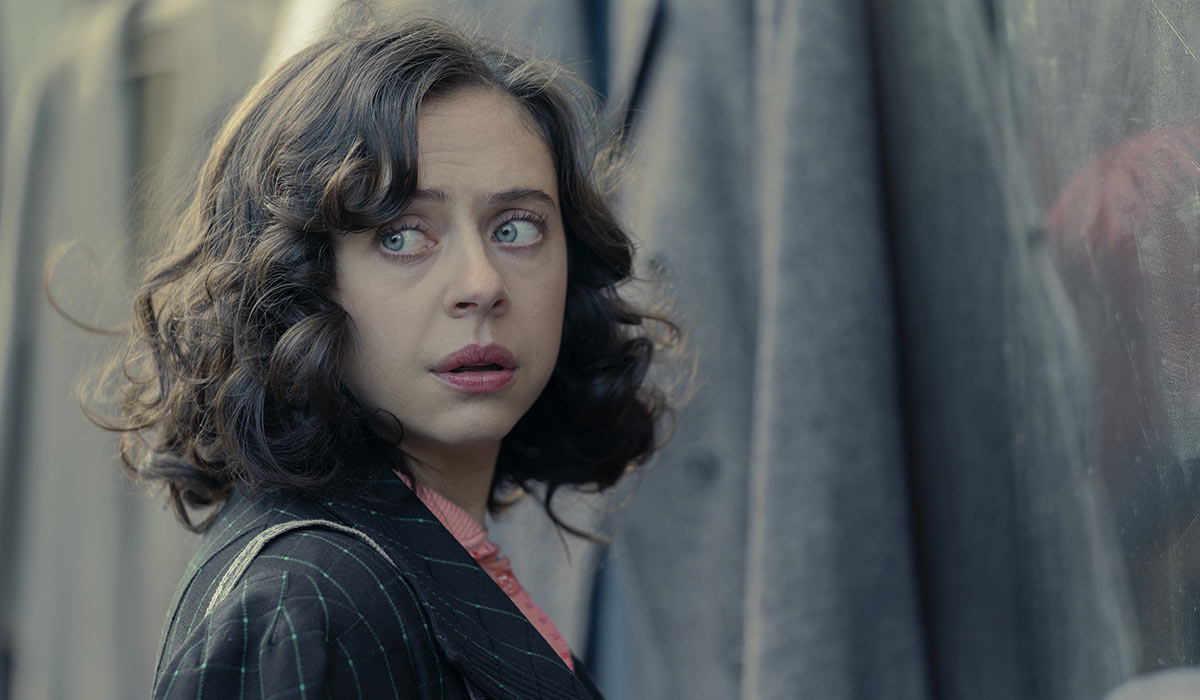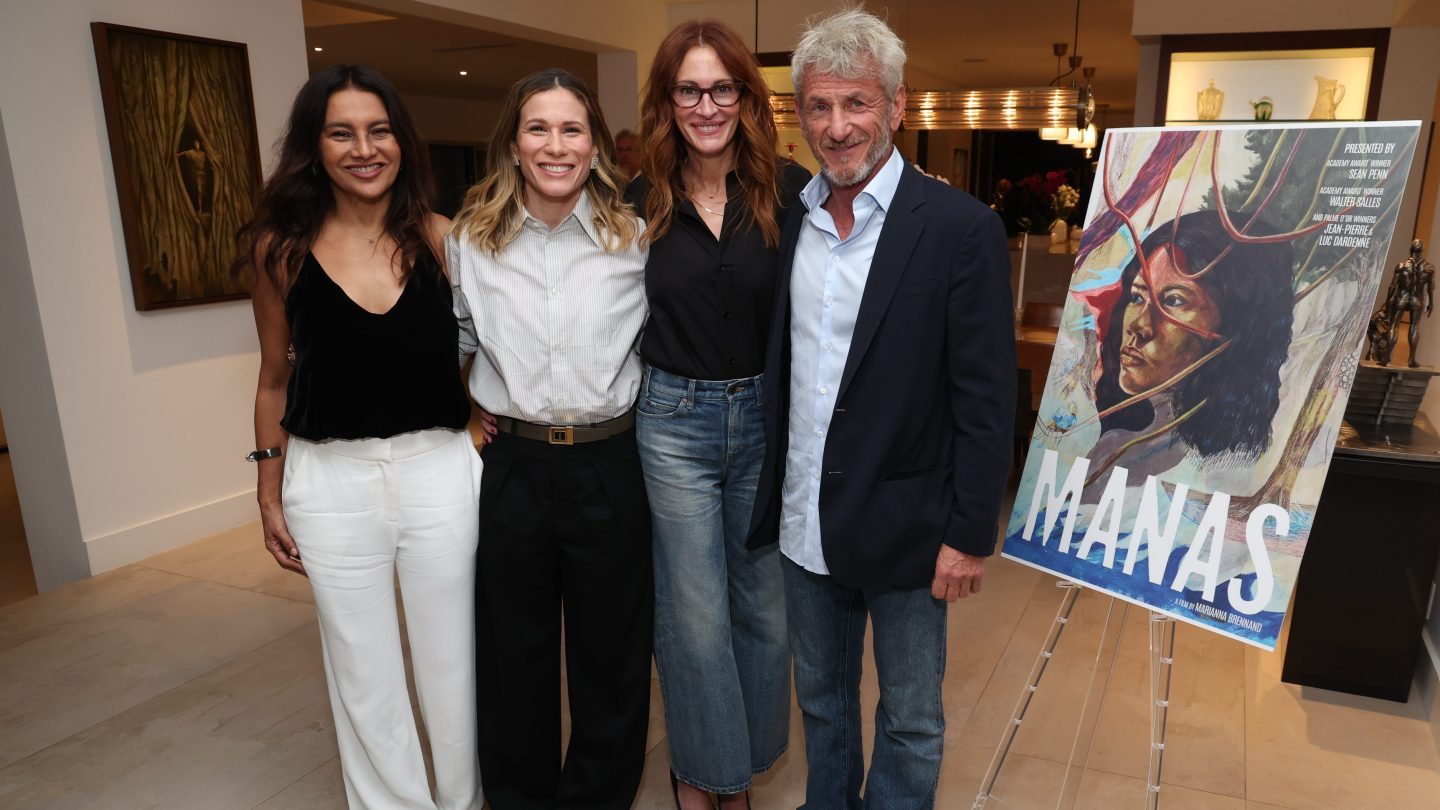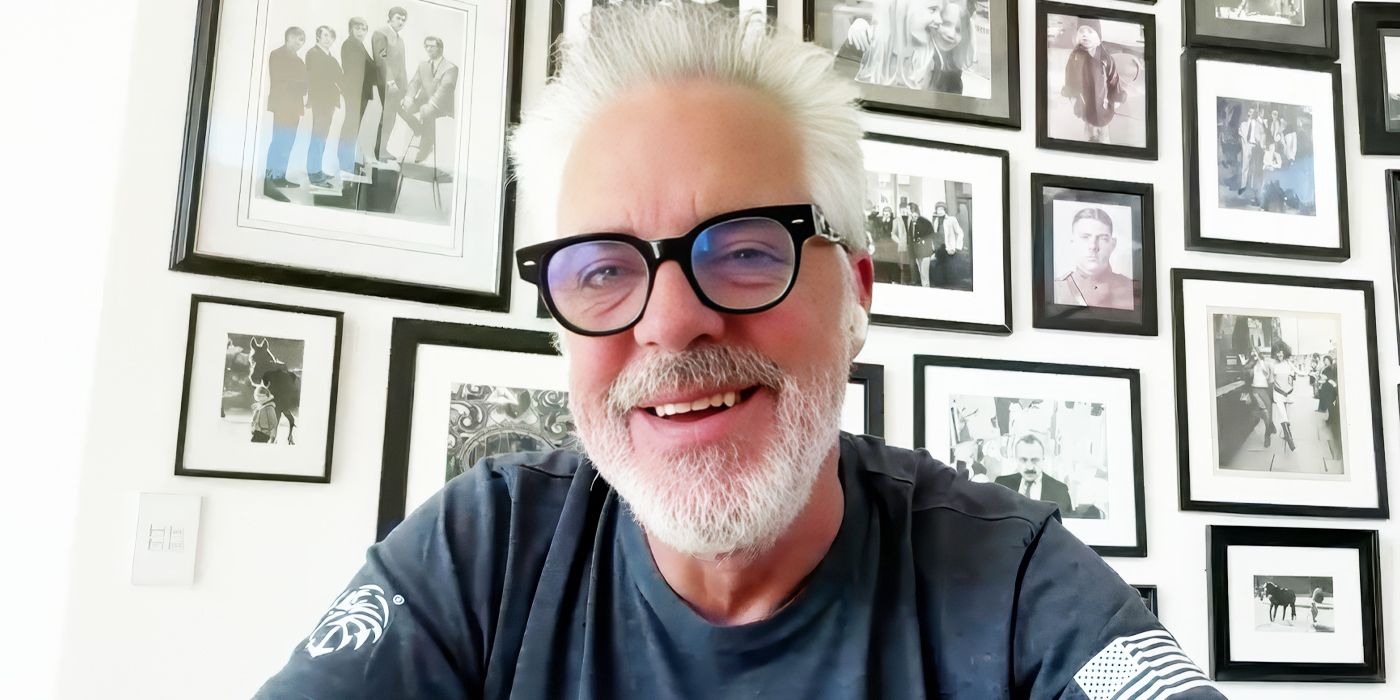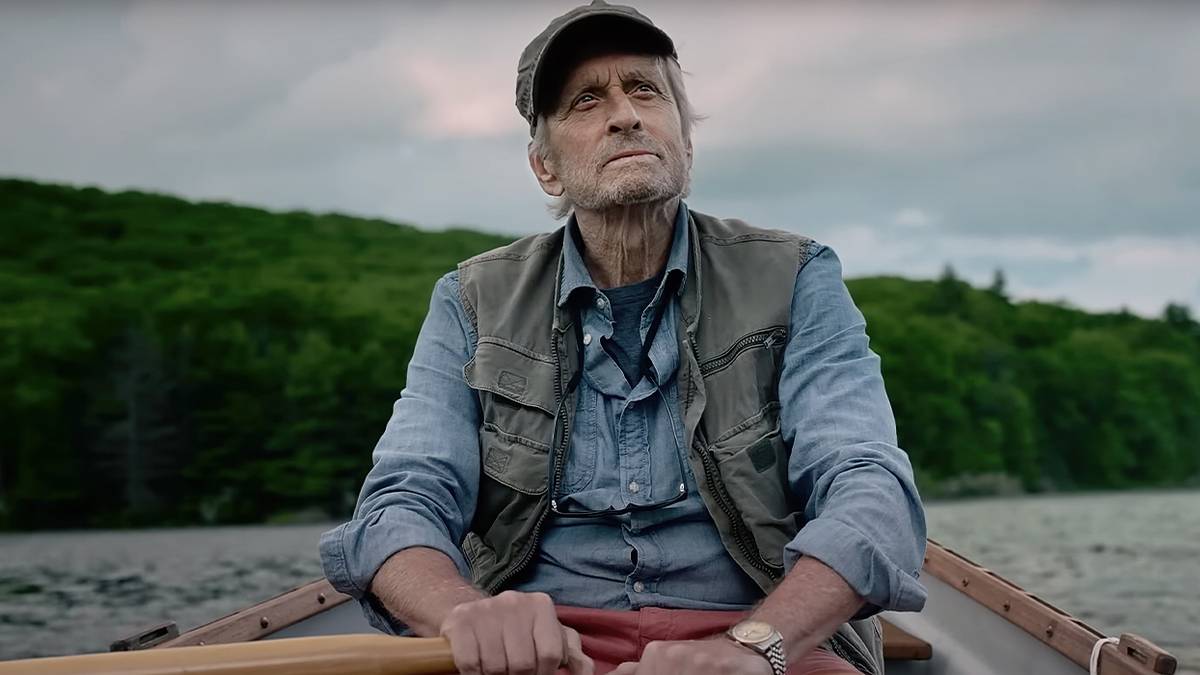
Bel Powley On Why Anne Frank’s Story In ‘A Small Light’ Is More Relevant Than Ever [Interview]
Apr 24, 2023
We know you’ve watched a lot of films and television about World War II. We know you’ve seen a lot of films and television about the Holocaust. You’ve also likely seen the story of Anne Frank and her family told in one fashion or another. That being said, it’s sort of remarkable it took this long for the story of Miep Giles to make it to any screen. And, Bel Powley, who plays Giles, one of the heroes who hid Frank and her family, can easily make the case why you should see history play out once more in the new National Geographic limited series “A Small Light.”
READ MORE: Emmys 2023: Lead Actress in a Limited or Anthology Series or Movie Contenders and Predictions
“Well, A, it’s about an unlikely female hero that we don’t know about,” Powley says. “And I think that since #MeToo, there are a lot of these female heroes coming out of the woodwork. So, to tell Miep’s story and for it to be on an international platform, I think that’s important in itself. But also I think that the political background of this story is incredibly relatable to what’s happening now. We are living through the biggest refugee crisis you’ve ever seen. There are more displaced people in the world now than they were during World War II. And that’s what part of this story is about. The Franks were a family of refugees. They immigrated, they left Germany to come and seek safety in Amsterdam and then they had to go in hiding. It’s really not dissimilar to things that are going on in the world right now. And I think that Miep being this unlikely hero, this ordinary person who did extraordinary things, can hopefully make people look at themselves and think, well what would I do and what should I do?”
Preach, Bel. Preach.
It goes without saying that moments in the long documented story of Anne Frank and the Frank family are discussed in the following conversation.
_____
The Playlist: I’ve seen eight episodes so far and it’s quite impressive. When the project came your way, what about it made you want to jump on board?
Bel Powley: Oh, I mean so much. I’m Jewish myself, and this offer actually came in on Holocaust Memorial Day, which felt really special. So before I even had read the pilot, I knew that this subject matter was something that I felt personally connected to, but I knew nothing about Miep Gies. And as you know, I read up more on her and read Tony [Phelan] and Joan [Rater’s] incredible script, I was just kind of astounded at this woman who I feel like is very relatable and who has done these incredibly brave things. Also, another thing that made me want to do it is that often I find with period pieces you can feel a bit disconnected from them or you’re viewing them through something. But with this, I immediately felt like I was in it. I think it’s got that kind of modern, relatable edge to it, which I think is really important because obviously, it’s a part of history that’s been explored a lot on screen. And I think if we’re going to explore it again, let’s do it in a different way and let’s make people want to hold up a mirror to themselves and think, what would I do? Rather than just making it feel sepia-toned and dusty.
I was going to ask about that. The character relationships, especially with Miep and her best friend, seem very contemporary and modern. Was that evident in the script you got or was that something that executive producer Susanna Fogel talked about in their approach?
It was always the plan for the show. So, the first time I read the pilot, I could tell that it had this modern edge to it. I mean, even the language that they’re using in it’s obviously not the language that people use in the forties. But as I just said, that’s what made me more excited about the project. The character that you’re talking about of Tess, Miep’s best friend is actually one of the only characters that’s made up in the show. Tony and Joan and Susanne wanted to have a character who started off in the same place as Miep, but who actually took a different path during the war. So I think that was a really interesting angle on it.
Not knowing anything about Miep’s life, what surprised you the most in this story about what she went through?
There isn’t one particular moment, I think it’s just her general bravery. She just had an unwavering gut instinct about what was right and what was wrong. When Otto asked her, “Will you hide us?” She immediately was like, “Yes, of course.” He was like, “No, wait, you need to think about it for a second.” She’s like, “No, I don’t.” She’s just unbelievably brave. But you do get the sense of that from reading her book, she wrote a book called “Anne Frank Remembered” later on in her life, and I’m paraphrasing here, but she says a lot in the book, “I don’t know why we did it. We didn’t question it, we just did it because we had to. We got on with it.” Yeah, she’s just an inspiration really.
Obviously, the other aspect of this is she lived an incredibly long life, did many interviews and there is even a documentary about her. Did that help you with your portrayal or are you someone who feels like I have to take the character off the page and make it my own?
I’d say more the latter. Obviously, I wanted to honor the real person and I knew that I had a huge responsibility on my shoulders, so I didn’t want to bastardize it in any way. But I also think when you are on set every day for six months, you have to find your own personal connection to the character and you do have to make it your own a little bit. Tony and Joan had been preparing to make this TV show for years and years and years. So they had a plethora of material for me to pick from to use as my own personal research. I kind of stuck to Miep’s book, because she wrote that herself in the first person, and that came me a real sense of her voice. And then also there was one interview that Miep and Jan did later in their lives in the nineties with a Dutch interviewer, and it was just a very long transcript, but it just really helped me to get a sense of their vibe with each other, how they spoke to each other and really still that late on in life at that old, they still really did have banter with each other and you could really tell that Miep wore the trousers. So yeah, I kind of focused on those, and then Tony and Joan were so there for us.
History has told us what happened to the Frank family and the last episode screened for press teases what is about to occur. It has been documented that Miep begged the Nazis to save them. Am I assuming that was one of the hardest days to shoot, or were any of these days harder than others?
To be honest, we shot it in blocks. So, the first three episodes together, then four and five together, and then 6, 7, 8. And 6, 7, and 8 were about a hundred times more difficult to shoot than the rest because, by that point in the story, there’s no let-up. So it was pretty relentless. I did find, there’s a scene in episode eight after they find out that the girls aren’t coming back, they spend a portion of episode seven basically just searching for them, and then they find out they’re not coming back. And it’s that kind of really horrible, deflating sad feeling that I had to portray. And I found that really difficult. I also think because by then I’d really gotten to know Billie Boullet and Ashley Brooke who play Anne and Margo [Frank]. So I don’t know, it felt easier to empathize with the situation or something. But yeah, honestly it still makes me emotional thinking about it. Episode eight’s hard. It’s really hard.
I was going to actually ask about the actress who plays Anne because I feel like she’s giving a depiction of Anne that we haven’t really seen before, such a teenager and almost in a contemporary manner. Can you talk about what your relationship was on set and how the director got everyone there in this serious moment?
Yeah, we were so lucky that the entire cast just got on really well. I think Billie Boullet is so perfectly cast as Anne. The point of our show is, let’s go beyond the historical facts that we all know and try and get into the humanity of this situation. And Anne was a teenager in the Annex, and by the way, those years of being a young woman are the most intense, it’s when you are feeling the most stuff. And I think that Billie portrayed that perfectly. And Miep actually always said, she says in her book that at times she was even so in awe of Anne and almost jealous of her about how confident and precocious and smart she was. And I actually feel a bit like that about Billie. So yeah, she’s fab.
We’re going on 80 years since World War II. Many people could say, “Oh, I don’t need to see this. I’ve seen so many of these sorts of stories before.” What would you say to them about the importance of this particular story and why it deserves their attention?
Well, A, it’s about an unlikely female hero that we don’t know about. And I think that since #MeToo, there are a lot of these female heroes coming out of the woodwork. So, to tell Miep’s story and for it to be on an international platform, I think that’s important in itself. But also I think that the political background of this story is incredibly relatable to what’s happening now. We are living through the biggest refugee crisis you’ve ever seen. There are more displaced people in the world now than they were during World War II. And that’s what part of this story is about. The Franks were a family of refugees. They immigrated, they left Germany to come and seek safety in Amsterdam and then they had to go in hiding. It’s really not dissimilar to things that are going on in the world right now. And I think that Miep being this unlikely hero, this ordinary person who did extraordinary things, can hopefully make people look at themselves and think, well what would I do and what should I do?
Both you and Joe Cole have great chemistry playing Miep and her husband Jan Giles, can you talk about that process or did you just naturally click?
We pretty much just naturally clicked, which I think was really lucky because we were very pushed for time making this show. Some days we were shooting 11 pages a day, which was crazy. And so luckily Joe and I have very similar ways of working. We’re not too over-analytical. We like to just get into the moment and feel it out. And I think that was helpful because of the time constraints that we had, but also we were very free with each other, little bits of improvisation. And also we just really got on as people. But he’s still a great friend and I adored working with him so much.
I don’t know if you watch your own content, whether it be film or television, but if you have watched what is available for this, what impressed you the most after going through this long journey making it?
I find it difficult to watch myself. I usually will watch it once with my eyes half closed and then that’s it. But with this, what I was so glad about is that tonally we were going for something a bit different, making this show, it’s not so period modern, like something like “Bridgerton,” but it’s not classic period. It’s like somewhere in the middle. And I knew in my head how I wanted it to be, but I just wanted to make sure that translated onto the screen and I was really pleased when I watched it. I found that it did. It has both elements to it.
“A Smile Light” debuts on NatGeo on May 1 and will steam on Disney+ and Hulu the next day.
Publisher: Source link
Reese Witherspoon and Jennifer Aniston Are No Longer the Best Parts of Apple TV+’s Buzzy Drama
The Morning Show has always sought to keep its finger on the pulse and integrate the most pressing topics that real news anchors would be covering. Launching as one of Apple TV+'s flagship shows back in 2019, the first season…
Sep 18, 2025
Michael Douglas and Son Go Fishing in a Washed Up Family Drama That Never Finds Its Depth
It's always an interesting move when real-life families act together, especially when they are playing families. At times, it can feel like a cynical vehicle for a younger or less-talented actor to ride the coattails of their elders; at others,…
Sep 18, 2025
Darkly Funny and Uncomfortably Honest
James Sweeney’s Twinless is a black comedy psychological drama that plays like a tightrope walk between absurdity and sincerity. Starring Dylan O’Brien in a demanding dual role as Roman and his deceased twin Rocky, and Sweeney himself as Dennis, the…
Sep 17, 2025
The Quintessential ’80s Teen Movie Hasn’t Aged Very Well, But It Still Holds Up Where It Matters Most
Forty years later, John Hughes’ The Breakfast Club remains the quintessential teen movie. It’s funny, heartfelt, wonderfully acted, and above all, it avoids rehashing the same familiar formula we’ve seen a million times (a formula that, at the time, was…
Sep 17, 2025











